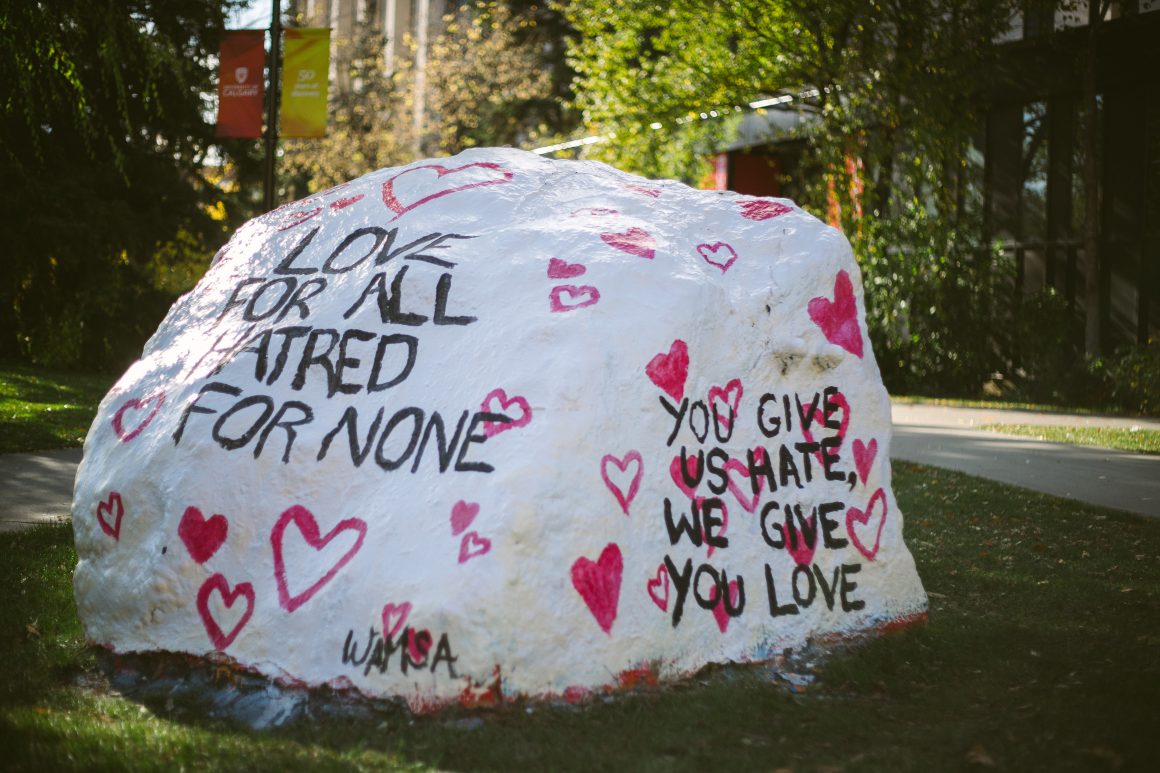
Anti-Muslim posters found on U of C campus technically not criminal in nature
By Scott Strasser, October 10 2016 —
Though offensive, Calgary Police Services say anti-Muslim posters found at the University of Calgary last week do not break any Canadian hate speech laws.
On Oct. 4, campus security officers found around 40 posters at the U of C depicting a burning Quran and various hateful messages directed towards Muslims. The posters were found throughout the main campus and removed in the early morning.
“F–k your beheadings. F–k your Sharia. F–k your Mohammed. F–k your Quran,” read the posters. “You can keep your barbaric ways right where they belong — in your seventh century homelands.”
After they were found, U of C president Elizabeth Cannon said the posters “in no way reflected the culture of the university.”
“We’ve obviously turned this over to the Calgary Police Services. We hope that the perpetrators can be identified and held to account,” she said.
But despite the hateful nature of the messages, Sergeant Eric Lavesque, a hate crimes coordinator with the Calgary Police Services, said the content of the posters was not criminal in nature.
“It is very offensive, but if you remove the bad words, the message itself does not contravene Canada’s hate speech laws,” Lavesque said in an interview with the Calgary Herald.
While Canada’s Charter of Rights and Freedoms has a section that prohibits hate speech, there are high thresholds for breaking such laws.
According to Lavesque, there are around 50–60 hate crimes per year in Calgary. Only a handful have resulted in criminal charges being laid since 2009, usually due to a public incitement of hatred.
Even though no criminal charges would be laid if the perpetrators were discovered, U of C campus security is still investigating the incident.
“I want to be clear that the university’s investigation has not stopped and is still ongoing,” chief of campus security Brian Sembo said. “Campus security has reviewed surveillance video and we now have a description of a person of interest. This is new information that we’ll actively pursue, while continuing to coordinate with police to determine who is responsible.”
Campus security describe their main suspect as being a black male in his 20s or early 30s, standing at 5’10 with a stocky build.
Should the suspect be identified, the university states there are several potential consequences for their actions. If the person is not a student, faculty or staff member, they could be subject to a trespass ban from all U of C properties.
If the perpetrator is a student, the university said they “could face an investigation under the student non-academic misconduct policy and procedure.” If they are a staff member, they could undergo an investigation by Human Resources for a breach of the U of C’s Code of Conduct.
The incident spurred solidarity among U of C students, staff and faculty. On the day the posters were discovered, the U of C Faith & Spirituality Centre organized a gathering in front of MacHall. Attendees were encouraged to write positive messages on heart-shaped cards and give them to others.
Other positive messages towards Muslims have emerged throughout the U of C campus. On Oct. 5, members of the Women’s Ahmadiyya Muslim Student Association painted a message on the rock near the Prairie Chicken. The message, which is also the club’s slogan, reads, “Love for all, hatred for none.” The message also reads, “You give us hate, we give you love.”
“After the Islamophobic posters were put up on campus, we decided that we had to stand up for ourselves,” WAMSA vice-president events Sophia Rajpoot said. “The posters were extremely hurtful and instead of spreading hatred we wanted to spread love.”
